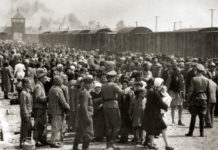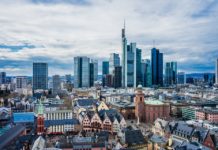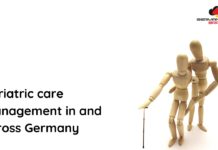
Germany just like any other country also has its public holidays, both at regional level and international level. Germans also use the same 365-day calendar that is universally accepted and so, the holidays will include the following in a typical year:
- New Year’s Day, January 1
Just like in any other part of the globe, Germans get to celebrate New Year’s Day every 1st of January. While some people may choose to stay at home with family and have meals together, most faithful will attend special church services and masses in different churches. It is also common to witness various charity events during this day.
- Three Kings Day January 6
Three Kings day marks the official end of Christmas festivities.
- Good Friday, April
Good Friday will be celebrated on 10th in 2020 to mark the crucifixion of Jesus Christ. It happens two days before Easter Monday.
- Easter Monday, April
Easter Monday follows the Good Friday to mark the resurrection of Jesus Christ. It thus happens three days after Good Friday.
- Labor Day, May 01
Labor Day is celebrated worldwide as an International Worker’s day, and has been in Germany since 1933 when it was first celebrated.
- Mother’s Day, May 10
In 2020, Mother’s day will fall on the 10th day of May but it is mainly celebrated in every second Sunday of May. It was declared official in 1993 and it is mainly to honor mothers for bringing forth children.
- Ascension Day, May 21
Christi Himmelfahrt is a religious day that is marked every forty days after the Easter. Sometimes, Germans view this same as Father’s day.
- Father’s Day, May 30
Father’s day is marked in every part of the world.
- Whit Monday, June 1
Whit Monday is celebrated every 50 days after the Easter and it is marked by special spring festivals and church service.
- Corpus Christi, June 11
Fronleichnam is celebrated every 60 days after Easter celebrations in Germany. It is celebrated in Baden-Württemberg, Bavaria, Hesse, North Rhine-Westphalia, Rhineland-Palatinate, Saarland, and some local authorities in Saxony and Thuringia.
- Assumption Day, August 15
Maria Himmelfahrt is marked as a public holiday in every 15th day of August to commemorate the departure of Mary from this life and her body’s assumption into heaven.
- Oktoberfest, September 19
On Saturday, 19th of every September, revelers from all over the world converge in their favorite joints to mark this important day that is culminated by endless liters of booze. Actually, it is the largest Volksfest in Germany, because residents celebrate it from mid-September to early October, which is close to two weeks
- German Unity Day, October 03
Tag der Deutschen Einheit is marked by a public holiday in every 3rd day of October to commemorate the unification of East and West Germany in 1990. the unification was culminated by the collapse of Berlin wall in 1989.
- Day of Reformation, October 31
Germans observe a holiday in every 31st day of October in in commemoration of Martin Luther’s Reformation movement of XVI century. The day is called Reformationstag or simply Reformation Day.
- All Saints’ Day, November 01
Germans devote every 1st day of November to commemorate the departed believers and it is marked by church services and lighting candles on the graveyards.
- Repentance Day, November 18
Repentance day is a special public holiday reserved for the state of Saxony in Germany, where Protestant Christians pray to seek God’s way. The holiday was initially marked in the whole country between 1990 and 1994 for exchanging health insurance improvements.
- Christmas Day, December 25
Every 25th day of December Christians all over the world celebrate the birth of Jesus Christ, which happened in biblical times. Germans too aren’t left behind in these celebrations and most of them mark it by attending church and spending time with family for festivities.
- St Stephens Day, December 26
St Stephens Day is the same as what other parts of the world call Boxing Day and it’s celebrated on the 26th day of December. St Stephens was the first Christian martyr executed for blasphemy against Moses and God.




































